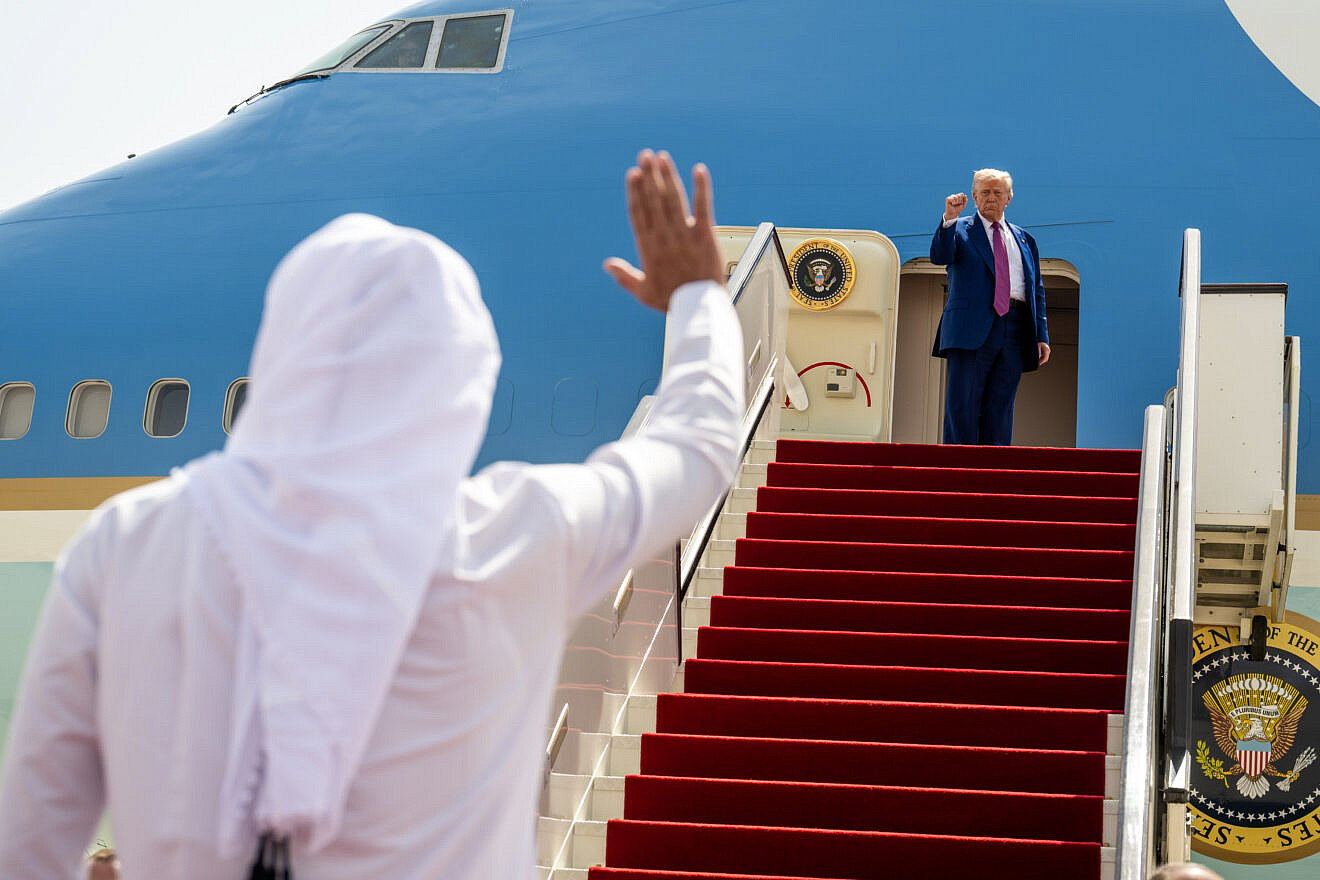The dangerous illusion of friendship with Qatar and other hostile ‘allies’
The very country that houses American warplanes houses America’s enemies.
By Stephen M. Flatow
JNS
Jul 18, 2025

The United States continues to cling to the fiction that countries like Qatar, Turkey and others in the region are “strategic partners,” despite overwhelming evidence that these states are undermining U.S. interests, funding extremists and destabilizing the Middle East. The illusion of friendship has not only clouded American judgment but has actively endangered the lives of our allies and our own troops.
It’s long past time to end this charade.
Washington calls Qatar a partner, but in truth, it is the world’s most duplicitous actor. Washington maintains a sprawling military presence at Al Udeid Air Base, using it as a launchpad for operations across the region. In return, Qatar bankrolls Hamas, hosts the Taliban and gives airtime to anti-Western rhetoric on its state-funded Al-Jazeera network. No serious foreign-policy analyst can deny this: The very country that houses American warplanes also houses America’s enemies.
Qatar’s role as Hamas’s top benefactor is not speculative; it is well-documented. In the aftermath of the Hamas-led massacre in southern Israel on Oct. 7, 2023, Qatar’s long-standing support for the group was thrown into the global spotlight. Rather than face sanctions, Doha continues to be treated as a mediator, despite its obvious bias and complicity. Why are we entrusting a Hamas patron with negotiating ceasefires? That’s not diplomacy. It’s delusion.
Turkey, another so-called ally, has increasingly adopted an Islamist, anti-Western posture under President Recep Tayyip Erdoğan. A NATO member in name only, Turkey has purchased weapons from Russia, harassed American allies like the Kurds and allowed jihadist elements to operate on or through its soil.
US President Donald Trump gets together with Turkish President Recep Tayyip Erdogan at NATO meeting in The Hague on June 24, 2025
Ankara’s support for Hamas and hostility against Jerusalem is part of a broader pivot toward authoritarian Islamism. Turkey shelters Muslim Brotherhood members, hosts admitted terror supporter Sami Al-Arian, amplifies antisemitic conspiracies and positions itself as a champion of causes diametrically opposed to Western democratic values. If this is friendship, what does enmity look like?
Even more baffling is the U.S. willingness to treat the new regime in Syria, now led by Ahmed al-Sharaa, as if it is a credible partner in regional “stability.” Although al-Sharaa came to power after leading the offensive that ousted Bashar Assad, his leadership of the Islamist group Hayat Tahrir al-Sham raises grave concerns about sectarian extremism and intolerance.
In recent days, Syrian forces under his command have launched assaults on the Druze community in southern Syria, prompting Israel to intervene militarily in their defense. Israeli airstrikes against Syrian military positions were reportedly carried out to protect the embattled Druze, highlighting Jerusalem’s willingness to act unilaterally when minorities are threatened.
Meanwhile, American forces remain in Syria under rules of engagement so restrictive they cannot meaningfully respond to evolving threats, inviting further instability and bloodshed.
There is a broader strategic failure here: the assumption that engagement, economic ties or shared military interests are enough to tame ideological adversaries. This “frenemy” doctrine has failed repeatedly. It assumes that transactional partnerships will produce long-term alignment with U.S. goals. In reality, these arrangements have funded extremism, rewarded bad behavior and alienated our real allies, in particular, Israel.
We have misread the game board. Qatar is not a neutral broker. Turkey is not a Western democracy. Syria is not a stabilizing force. These regimes exploit the West’s desire for dialogue and diplomacy while funding our enemies and weakening our alliances.
The United States must stop mistaking geography for loyalty. Just because our bases are on their soil doesn’t mean their interests align with ours. We must:
- Condition military and financial cooperation on measurable action against terrorist groups.
- Sanction regimes and individuals who fund or harbor extremists.
- Rebuild strategic alliances with trustworthy partners, especially Israel and moderate Arab states that have embraced normalization and peace.
- Pull back from failed engagement strategies that assume these hostile actors can be “managed” through diplomacy alone.
The war on terror has always required moral clarity. Today, that clarity demands acknowledging that we are feeding the enemy—militarily, financially and diplomatically—while pretending we are feeding friends.
It’s not just a strategic error. It’s a betrayal of American values, allies and the cause of peace.

No comments:
Post a Comment